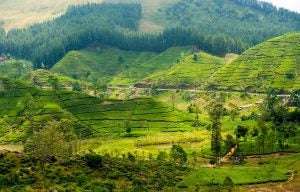What happens when a state or country forces organic production on all of its farmers? There are a couple of examples.
In 2018 a small state in India, Sikkim, was recognized by the United Nations Food and Agriculture Organization as the world’s first 100 percent organic state, and awarded the UN Future Gold Policy Award, sometimes called the Oscar for best policies.
Sikkim is in northeastern India, snuggled into the Himalayan Mountains and bordered by Tibet, Bhutan, Nepal and West Bengal. Crops are mostly grown on terraced mountain hillsides, rice being the most important crop, but wheat, barley, oranges, tea and cardamom spice are also common.
The path to 100 percent organic began in 2003 with a government policy to eventually convert the state’s 188,000 acres and 66,000 farmers to organic production. Thus a decade-long period of education in organic practices was initiated, punctuated by bans on synthetic pesticides and fertilizers plus fines or short prison sentences if they were used.

The world press points to Sikkim’s transformation as a great success and an example of how the world can be fed with organics. But there are problems. Farmers are not prospering and a lot have given up and moved to the cities. The supply of organic fertilizers and pesticides is inadequate and expensive, and government subsidies are too low.
Sikkim’s farms can’t produce enough food to feed the state’s population, and though imports are supposed to be only organic, cheaper non-organic produce from bordering states finds a way in and compete with Sikkim’s farmers. And some Sikkim farmers along the border import synthetic supplies despite the threat of jail or fines.
The other example was a catastrophe. Sri Lanka, an island nation of 22 million people in the Indian Ocean, began an effort in April 2021, just before planting season, to force farmers to farm organically by banning the import of fertilizers and synthetic pesticides. (Some say that decision was motivated more by the need to conserve dollar reserves than concern over environmental effects of synthetic pesticides and fertilizers.) Ninety percent of Sri Lanka’s farmers grew crops using modern pesticides and fertilizers. They had no experience farming organically, and yields plummeted.
Food prices climbed out of reach for many Sri Lankans. Rice rose by one-third, and the price of some vegetables rose by a factor of five. In August 2021 the government declared a food emergency. Agricultural commodities were confiscated and price controls were set to protect consumers, which only exacerbated the supply problem. By November 2021 the import ban was lifted, but that was no help for the 2021 crop.

By spring 2022, the country was bankrupt, not only from bad agricultural policy, but also just plain bad fiscal policies. There was no money to import the crop protectants and fertilizers the farmers needed. Food was scarce and expensive. The country was in turmoil. By July, the president was run out of town, escaping to the Maldives while protestors burned his residence.
The world needs to take notice of these examples. When countries go organic, yields fall and food imports from other countries must rise, putting more demands on the soils of the exporting countries.
Europe is going in that direction. Their “Farm to Fork “policy commits the EU to reduce the use of synthetic pesticides 50 percent and fertilizers 20 percent by 2030. The EU imports and exports of food are presently about equal. Imports are bound to rise as their yields fall, and more land becomes uneconomic and is abandoned.
On average, Europe now imports 55 million tons of fresh fruits and vegetables yearly, 40 percent of the global annual trade volume. Africa is a leading exporter of fruits and vegetables to Europe. And Africa is already a food-deficient continent.
Jack DeWitt is a farmer-agronomist with farming experience that spans the decades since the end of horse farming to the age of GPS and precision farming. He recounts all and predicts how we can have a future world with abundant food in his book “World Food Unlimited.” A version of this article was republished from Agri-Times Northwest with permission.



